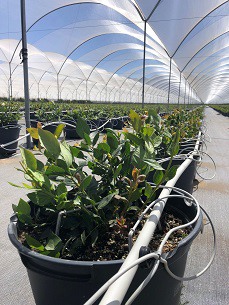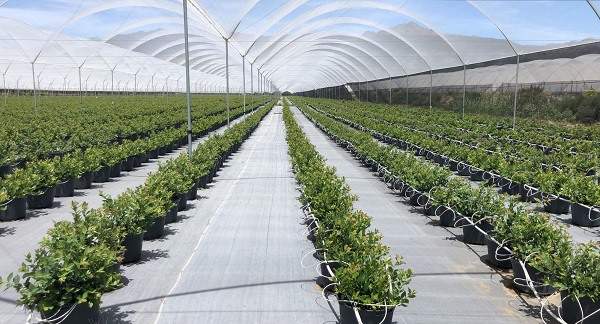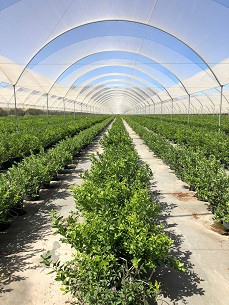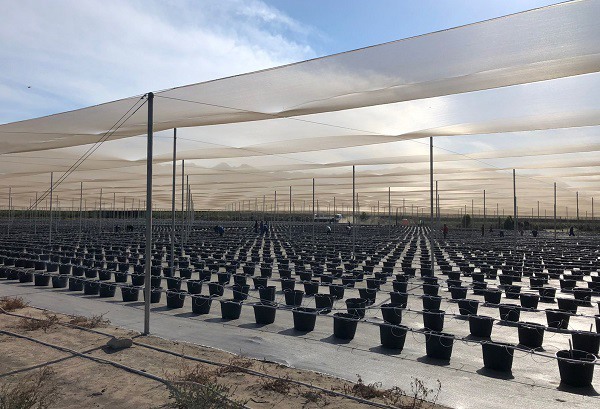 His exposure to the family fruit farm in Wolseley, converted to high-tech blueberry farming, demonstrated to Derek Stanford of Primocane Capital, the opportunities offered by high-tech horticulture but, equally, that recapitalization opportunities for asset managers and investors in the horticultural sector are currently underutilized.
His exposure to the family fruit farm in Wolseley, converted to high-tech blueberry farming, demonstrated to Derek Stanford of Primocane Capital, the opportunities offered by high-tech horticulture but, equally, that recapitalization opportunities for asset managers and investors in the horticultural sector are currently underutilized.
“It is an asset class that should be attracting more capital than it is. It's a good long-term investment and yields well if done properly but currently the sector doesn't attract enough investment,” Derek puts forward.
“It’s vital for South Africa to see more capital flowing into the agri sector. The whole theory with horticulture is that concerns more high value crops which are mostly exported, for instance, 90% of our blueberries can be exported. Our revenues are earned in hard currency like Pounds, Euros and Dollars yet our costs are Rand-based, so that’s a naturally hedged business model which appeals to these investors. It offers you nice exposure to currency plays.”
Primocane Capital advises investors on agricultural opportunities, they developed and operate most of the assets advised on. To date Primocane has raised R240 million (14 million euros) from private equity investors for the establishment of 140ha of blueberries, investors who were totally new to agriculture. Primocane Capital have positioned themselves not only as agri investment advisors but manage complete farming developments and operations, ensuring control and precision implementation.
He notes the paucity of state support for agriculture in South Africa, “but even in the face of that we’ve managed to raise significant amounts of private capital to invest literally into the ground of South Africa. Generally speaking, institutional wealth and government support follows private capital.”
 Photos supplied by Primocane Capital
Photos supplied by Primocane Capital
He continues: “At Primocane Capital our vision is to make agriculture an attractive investment class that appeals to all investors. The sector has all the necessary attributes, it just needs to be put on the map which I guarantee will attract real capital, not just pre-existing wealth and senior debt.”
Technology removes many traditional risks Most private equity funds or unit trusts, pension and provident funds categorically exclude agriculture from their investment mandates because of an outdated perception of unmanageably high risk.
Most private equity funds or unit trusts, pension and provident funds categorically exclude agriculture from their investment mandates because of an outdated perception of unmanageably high risk.
He posits that the poor performance of some of the agri funds of a number of South African investment companies has made them reluctant to look at niche agri investments. “We aim to change these perceptions through evidence-led performance.”
The level of technology employed in the grow mediums, irrigation and grow tunnels of blueberry orchards enable growers to mitigate a lot of the risks associated with farming and Primocane aims to showcase that, through the farms that they set up and run. Absolutely all controllables have to be controlled, he says, and they're creating more controllable through the introduction of these technologies.
“We want the big capital providers, pension funds, provident funds, governments, high net worth individuals, to actually look at agriculture, not to ignore it. I know that if my father could succeed and provide for his family of six kids on a small pear and plum farm, that agriculture makes good money, but it takes good skill and hard work. It's not a nine-to-five job, it’s a 24-hour job.”
Coupling horticulture with mining
Another radical departure is a project working with a mining company to introduce blueberry farming into their mine rehabilitation programme, while also importantly achieving the mines' newly required environmental, social and governance (ESG) targets.

“Mines should be considering a holistic rehabilitation approach where economic activity is maintained when mines exit. Agriculture provides a great solution in this regard. It makes sense; both are primary industries using natural resources to generate revenue, and both are massive job creators in the unskilled labour market.”
He concludes: “Agriculture, especially primary production in the form of horticulture, should be attracting much more financial investment than it currently is. South Africa, and the rest of Africa, have a long way to go.” For more information:
For more information:
Derek Stanford
Primocane Capital
Tel: 074 692 6952
Email: [email protected]
